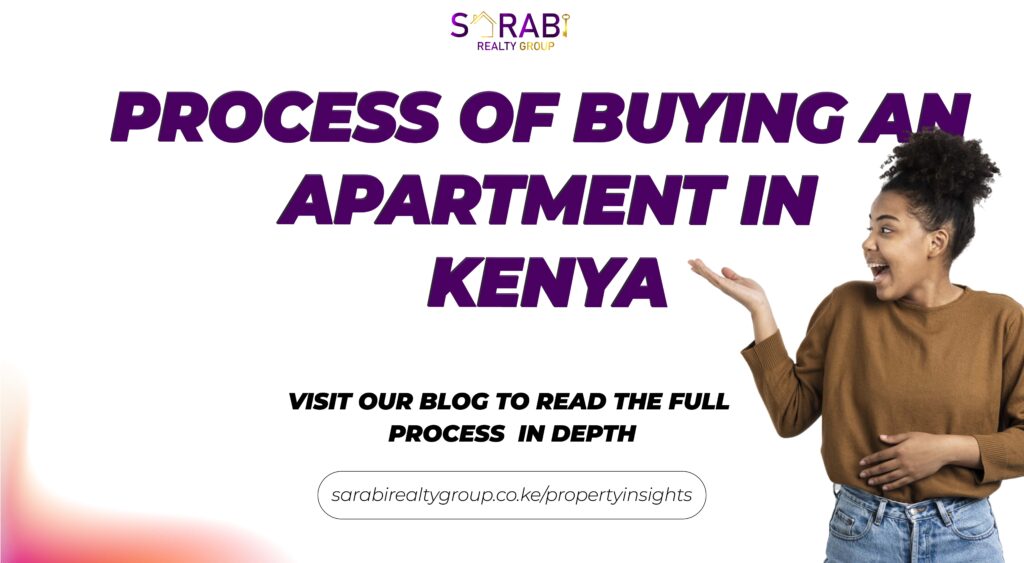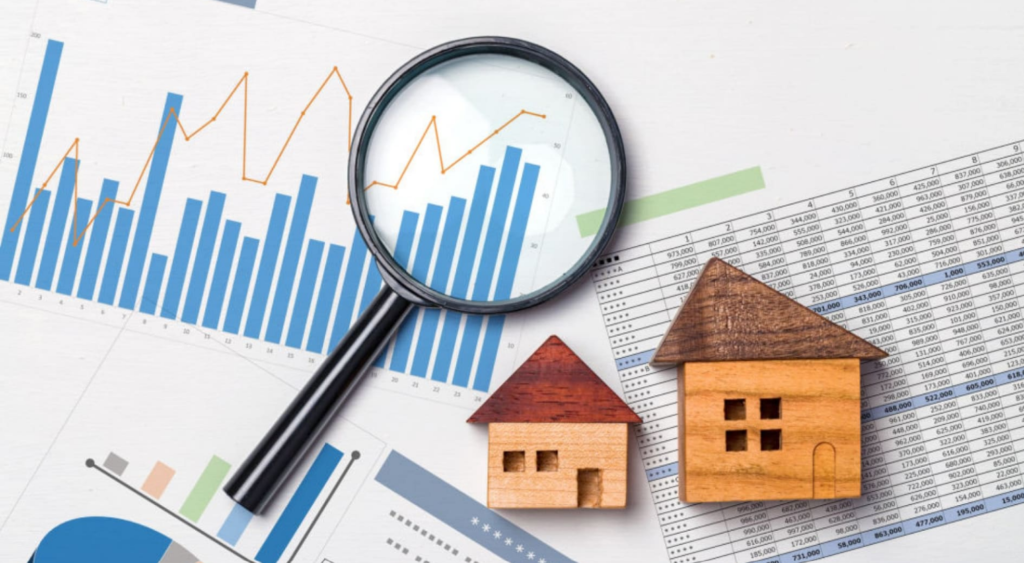WHAT IS THE PROCESS OF BUYING AN APARTMENT IN KENYA?

When purchasing property in Kenya, it is critical that the proper procedure be followed. Most
people engage in transactions with strangers and end up losing large sums of money to fraudsters
who are usually very smart. It is recommended that one hires the right people, such as Real
Estate Agents, Lawyers, Surveyors, or any other party who they believe will give them more
confidence in proceeding with the transaction.
It is common sense to know one’s budget. Cash savings, cash from the sale of other assets,
mortgage financing, and Sacco loans are some of the various methods of financing. In case of any
form of financing, one should determine first how much they qualify by approaching the relevant
loan officer for a pre-qualification so that you get to know what your budget is.
To avoid regrets, the process outlined below should be followed to ensure that all due diligence
is completed:
1. Identify the property
The first step is to identify the property (land, house, etc.) that interests you. You can accomplish
this by contacting the vendor directly or hiring the services of a reputable real estate professional.
When you have found the property you want to buy, you should pay a site visit to ensure that it
meets your specific requirements.

2.Conduct A Search
The buyer should obtain from the seller a copy of the land title as well as a copy of the seller’s
national identity card. The title copy will be used to conduct a land search at the lands office, and
the national identity card copy will be used to verify the seller’s identity at the Registration of
Persons Bureau. The search results are usually ready for collection from the lands registry 2-3
days after application, and they include such details as:
a) The registered owner of the property
b) The size of the property
c) The encumbrances registered against the title if any, such as courts orders, prohibitions,
caveats and cautions.

3.Negotiation and Sale Agreement
The buyer should contact the seller or his estate agent, either on his own or with the assistance of
his lawyer, to discuss and agree on the terms of sale that will form the Sale Agreement. It is
customary for the buyer to pay a 20% deposit and the remaining balance of the purchase price
upon completion of the sale transaction. To complete the transaction, the buyer can borrow a
mortgage to pay off the remaining balance.
Both the buyer and the seller are required to sign the Sale Agreement. It is at this point that the
buyer pays the deposit.
4.Transfer and Completion
A transfer is a document that records the formal ‘movement’ of proprietary rights from the seller
to the buyer. This is signed by both parties.

5.Stamping and Registration Formalities
The next step in the sales process is to pay stamp duty on the transfer of property and registration
fees. To determine the amount of duty owed, the seller’s representatives must apply for a
valuation of the property at the land office. Government valuers are responsible for determining
the property’s market value. The stamp duty paid ranges between 2% and 4% of the property’s
value.
Stamp duty is collected by the Kenya Revenue Authority and paid to the Commissioner of
Domestic Taxes via various banks that have been designated as collecting agents. Once the buyer
has paid the stamp duty on the transfer documents, the documents are submitted to the lands
office for stamping.
The final step is for the transfer documents and all the attendant documents, i.e. the original
titles, land rent and rates clearance certificate, consent to transfer, the duly completed valuation
for stamp duty form, and the stamp duty declaration, assessment, and pay-in-slip, to be booked
for registration.
The final step in the sales process is to register the transfer in favour of the buyer. When a duly
registered transfer is released to the buyer, it is critical to conduct another search on the property
to ensure that the proper registration was completed.
If the purchase price is to be provided by a bank or other financier, the duly registered documents
are charged to the financier so that it can settle the remaining purchase price. The documents will
then be held by the financier until the buyer has paid the entire loan amount.

